Caroline Attwooll turns attention to creating collective
Caroline Attwooll’s quest to make Bondi eat organic has brought warmth and comfort, especially during COVID 19, and now she’s ready for something new.
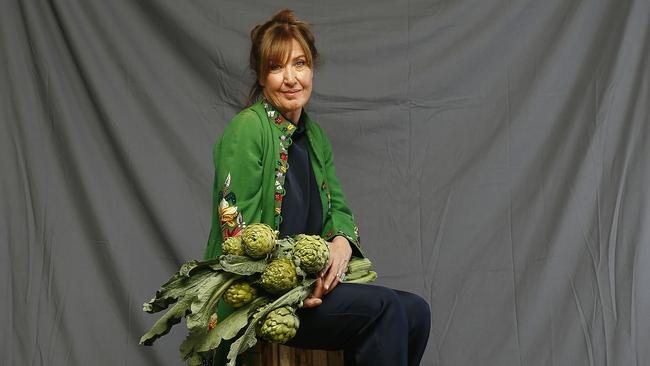
Wentworth Courier
Don't miss out on the headlines from Wentworth Courier. Followed categories will be added to My News.
Caroline Attwooll has been a fixture in Gould Street since opening her Earth Food Store in 1991. And even now, nearly 30 years later, the Bondi local is still cutting vegetables, putting through phone orders and managing staff in one of the suburb’s most loved cafes.
Renamed UMU three years ago, the business is a bustling, warm eatery and shop selling a range of organic groceries, where Caroline and business partner Jonathan Cohen have put together a well-loved menu of vegetarian dishes and some damn good coffee. It’s somewhere locals obviously feel comfortable – especially coming out of an uncertain COVID-19 period. As we sit and chat at a long table on a cold Sydney morning, Attwooll is a big part of that comfort, as she rushes to finish an order, clears tables and chats to customers who she knows by name.
“I think community’s really important when people are in these lockdown periods,” she says.
“I guess during COVID, this is probably seen as a safe space. People are saying, ‘Oh my God, you’re my one outing a day.’ And you’re a smiling face, and you’re a kind word. You’re something that gives them a little bit of laugh. That’s what community means to me, is that people feel safe, whatever is going on for them.”
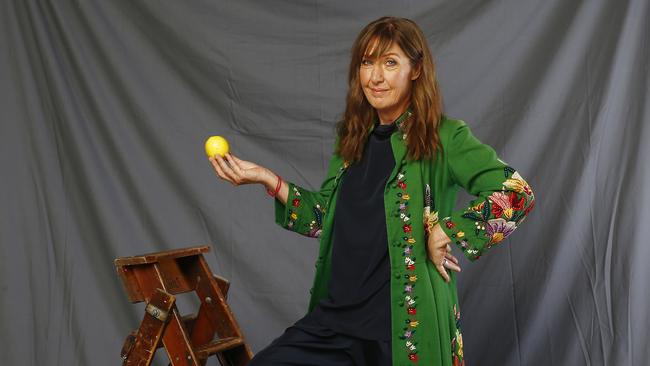
“There’s something really beautiful and really ordinary (about it),” she continues. “The acceptance of the ordinary parts of life. Like all the people coming in for coffee and you say hello, and they like it in a particular way, and you remember it. It means something to them.”
Of course, things have changed during COVID for many restaurants with restrictions in place, and for the team at UMU, community or not it’s still been a testing time.
Says Attwooll, “In the first few weeks, everybody was eating pizzas, drinking beer and having red wine, and coming in here for a coffee, and cake, and sugar! Now I think people are cooking more (at home). I think they’re enjoying that.
“Because they are working from home, people might come out by themselves and have a breakfast. But on the weekends, I think people are staying at home with their families a lot more.”
She shrugs. “It’s not great for business but it’s fantastic that people are doing that.”
Business partner Jonathan Cohen agrees that times have been tricky but applauds Attwooll for her determination.
“Caroline’s been driven to try and achieve the best result, the best quality food. The best offering that we can possibly do,” he says.
“And there’s always a whole range of different factors that affect how your food actually comes out. Whether you’ve got a different chef or you’ve got, in this case, under COVID, a reduced offering because we can’t do our full menu, Caroline’s really great at actually getting the best out of the people and the business.”
Attwooll laughs, “It’s been a rollercoaster. I’ve never worked harder in my life. I feel like when they used to strap you into the Big Dipper … it felt a bit like, you know, hang on for the ride!”
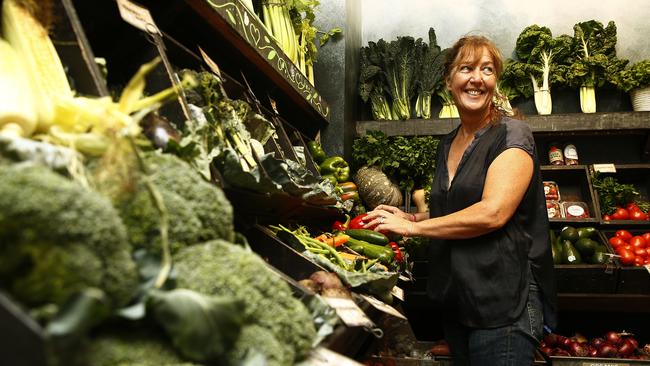
Post-COVID she and Cohen say they’ll keep adjusting, with some very big plans afoot in the UMU world. In fact, Attwooll announces, they’re planning on changing the entire model of the shop, turning the business into a collective.
“In the next year I’d like to invite more people to actually buy in to the business,” she says. “The idea is to bring in younger people. They have to do 20 hours on the floor, but also maybe they do marketing or maybe they they’re accountants. UMU could have a publishing arm and if they are a writer, they might decide to do recipes or book. And then the rest of the time they have to participate in the everyday running of the store.”
Says Cohen, “One person might have some marketing background or experience. One of them might be the chef. Someone else might have been at maître d’ or whatever. It gives them the ability to build it to something more than what it currently is.”
“It’s a weird kind of socialist/capitalist model, but also you can only do so much with two people,” adds Attwooll. “Young people also don’t want to be stuck doing one thing, and this means they’re not on their own and they don’t have to take big risks.”
“Intuitively it feels like a good business model.”
It won’t be the first time Attwooll has forged her own path. Starting out studying theatre, (“I had my own theatre company, but I’m quite introverted, I didn’t like performing”) the journey from the stage to the kitchen of her own organic eatery was the furthest thing from her mind. But a trip to India opened her eyes to farming practices, and it was then she started looking for organic alternatives.
“It was a bit of a no-brainer for me,” she says. “I kind of got the concept of organic on a lot of different levels. But part of it was the politics of it too.”
She joined a group going to Kadra in the country’s south. What she saw here left a lasting and life-changing impression. Hundreds of children with bad deformities that were caused by agricultural chemicals.
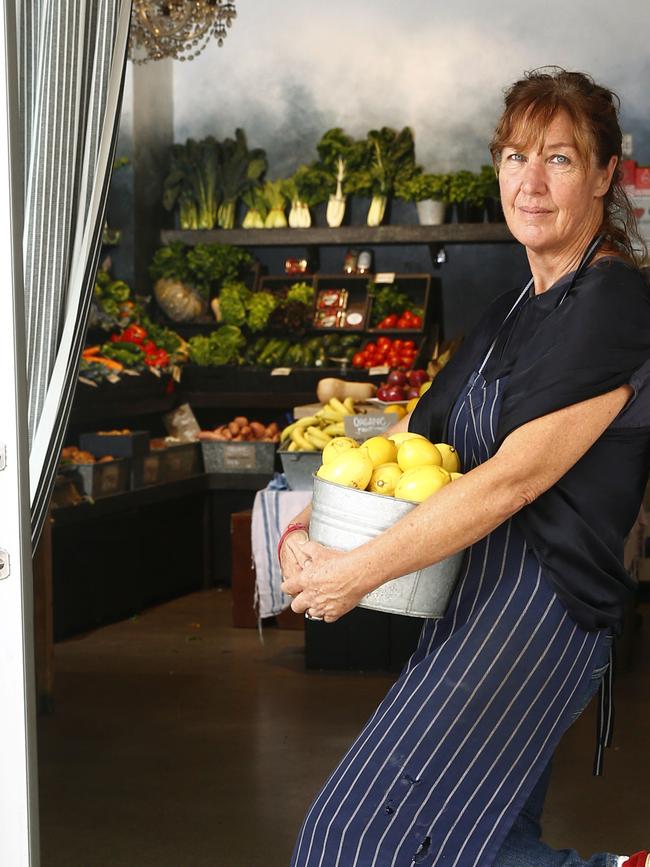
“The fact that big companies were choosing to keep producing chemicals that they knew were really bad, not just for the planet but for people’s health and their family’s health. You know, it’s bigger than it’s just healthy for you. It’s sort of like, this means the production doesn’t work.”
“Everybody said, ‘Oh, there’s nothing you can do about it,’ but then I thought, well hang on a second, every dollar you spend has a massive effect. I think I was almost desperate to find a way that people could have an influence.”
Back home, Attwooll started dipping in the world of organics, now a $2.6 billion industry in Australia and a $97 billion one worldwide.
“I wanted to promote specific health benefits. I just had to,” she says, adding that knowing where our food comes from is vitally important to her. “One of my passions, I guess, is for people to understand that somebody found some soil, they planted some seeds. They looked after that seed till it grew. They weeded it, they watered it. They picked it in a bunch. They brought it to market. There’s a respect there and that we should respect it too. That’s a really big issue for me.”
It’s also something she now tries to communicate to her staff.
“Sometimes I come in and staff haven’t covered something in the cool room. And I go, “Why? Because you couldn’t be arsed?” she says. “Think about what went in to getting this here.”
Says Cohen, “She’s definitely the one who wields the whip a bit more. Staff tend to play mum and dad. Mum says no, they’ll go to dad!”
“It’s what she’s always focused on, trying to make the food and the experience better,” he adds. “She’s a perfectionist.”
In 1991 a friend suggested Attwooll opened her own organic fruit and veg store – in a spot that would eventually become UMU.
“We set up one side of the shop and then I ran out of money. So we put a still life, we literally put two painted sconces, there, with pumpkins on it and we just sat it there. When they’d say, ‘What’s that?’ we’d go, ‘Art. It’ll become something!’ She chuckles, “Back then the rents were cheap enough that you could do that!”
These days she thinks Bondi has changed immeasurably, certainly when it comes to those rents and the types of residents that can afford them.
“I actually think organics have probably become less significant to people here. Oddly enough,” Attwooll muses.
“Back then there were lots of artists, there were lots of hippies. They were really committed to organics. They were really into it. Genuinely, it was part of their being. And now because real estate’s gone up, rents are like, I don’t know, they must be 10 times what they were when I started.
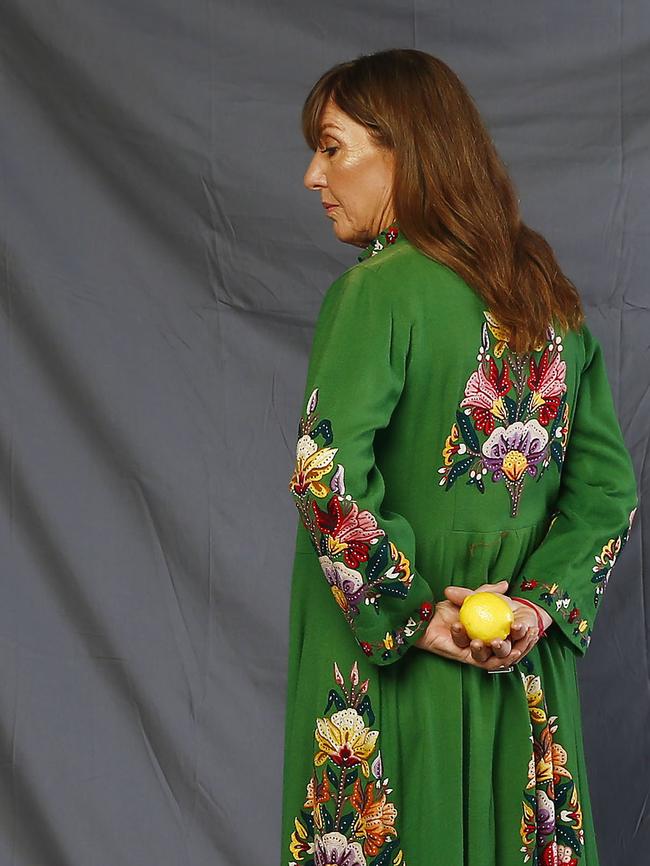
“I mean there were people back then who were really not making any money but the money they did make, they wanted to spend on good food. I think there are people now that would spend 25 dollars on a cocktail but think an organic mango at four dollars is outrageous!” she laughs.
She describes today’s clientele as mixed. “You’ve got old people, younger people, teenage people, mums with babies … it’s more diverse than your average cafe.”
“I guess, we have adjusted to the different culture as it’s come along.”
While COVID has already changed a lot about the way UMU does – and will continue to do – business, Attwooll herself is ready for this next phase.
“When COVID came in, everything stopped so suddenly and it’s sort of like, wow, this is fantastic for the environment. All of the customers are saying, ‘Oh my god, I never want to go back to work. I never want to have to put on clothes and spend an hour on public transport getting in’. People are going, ‘I could work from home. And I’ve got this young daughter and I’m seeing her more, and why do I need my office?’”
She smiles as she looks around.
“I guess I started thinking along the lines of, well, it’s time. We don’t have to do everything the way we’ve always done it. Now we can pass it on to the next generation of people. And they should do it differently. They want to eat differently. And that’s exciting.”
